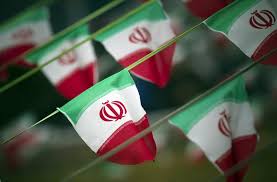Iran president asks Europe for guarantees on banking channels and oil sales

Iranian President Hassan Rouhani on Monday urged the remaining signatories to its 2015 nuclear agreement to act to save the pact, although France’s leader called again for broader talks on Tehran’s missile programme and its role in the Middle East region.
In a phone call to French President Emmanuel Macron, Rouhani said Iran wanted the Europeans to give guarantees on banking channels and oil sales as well as in the field of insurance and transportation, according to the state-run Iranian news agency IRNA.
“Iran has acted upon all its promises in the nuclear agreement and, with attention to the one-sided withdrawal of America … expects the remaining partners to operate their programs more quickly and transparently,” Rouhani was quoted as saying.
Rouhani was speaking in the light of U.S. sanctions reimposed by Washington after President Donald Trump in May pulled out of a 2015 nuclear deal between Iran and world powers.
Macron reiterated France’s commitment to maintaining the accord, a remark aimed at soothing Tehran.
But he repeated his earlier calls for broader discussions with all relevant parties that would include Iran’s nuclear programme after 2025, its ballistics programme and its influence in the wider Middle East region.
“We will do everything so that the talks help avoid a serious crisis in the months ahead,” Macron said in an annual speech to French ambassadors.
Separately, the head of the navy of Iran’s Revolutionary Guards, General Alireza Tangsiri, said on Monday that Iran had full control of the Gulf and the U.S. Navy did not belong there, according to the Tasnim news agency.
Tehran has suggested it could take military action in the Gulf to block other countries’ oil exports in retaliation for U.S. sanctions intended to halt its sales of crude. Washington maintains a fleet in the Gulf that protects oil shipping routes.
STRAIT OF HORMUZ
Tangsiri said Iran had full control of the Gulf and the Strait of Hormuz that leads into it. Closing the strait would be the most direct way of blocking shipping.
“We can ensure the security of the Persian Gulf and there is no need for the presence of aliens like the U.S. and the countries whose home is not in here,” he said in the quote, which appeared in English translation on Tasnim.
He added: “All the carriers and military and non-military ships will be controlled and there is full supervision over the Persian Gulf. Our presence in the region is physical and constant and night and day.”
Later on Monday, U.S. Secretary of State Mike Pompeo said in a Twitter post: “The Islamic Republic of Iran does not control the Strait of Hormuz. The Strait is an international waterway. The United States will continue to work with our partners to ensure freedom of navigation and free flow of commerce in international waterways.”
The head of the Revolutionary Guards, Major General Mohammad Ali Jafari, said on Monday that Iran’s enemies would not prevail in a conflict.
“The enemies are strictly avoiding any conflict with Iran because they know that it will not be beneficial for them,” Jafari said, according to Tasnim.
As tension has escalated between Iran and the United States, senior U.S. officials have said they aim to reduce Iran’s oil exports to zero.
Iran’s Supreme Leader Ayatollah Ali Khamenei, the most senior authority in the Islamic Republic, said last month that he supported the idea that if Iran is not allowed to export oil, then no country should export oil from the Gulf.
